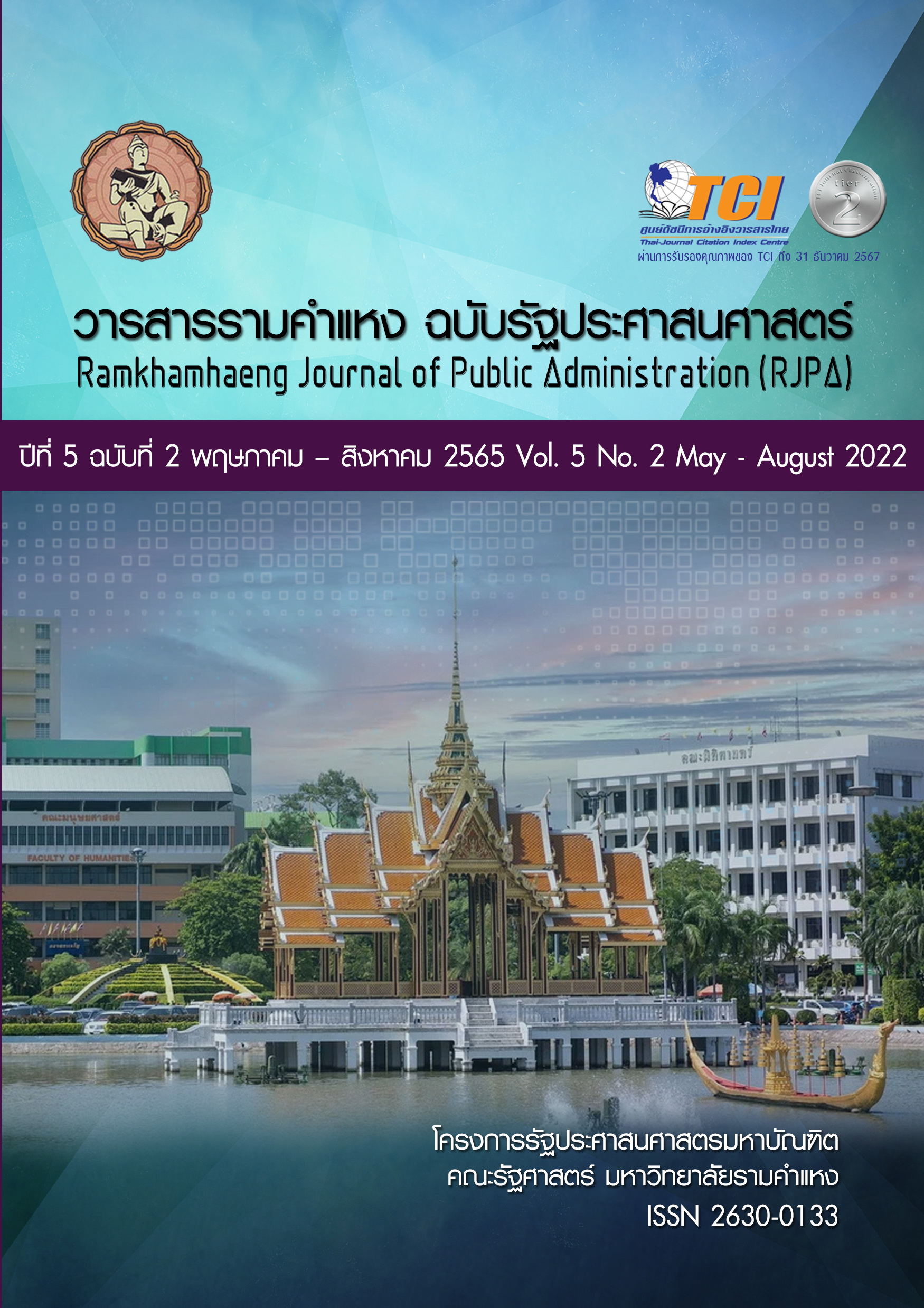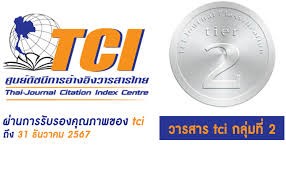การได้มาซึ่งความนิยมของสมาชิกสภาผู้แทนราษฎรในประเทศไทย (Popularity of the Members of the House of the Representative in Thailand)
Abstract
บทคัดย่อ
การได้มาซึ่งความนิยมของสมาชิกสภาผู้แทนราษฎร ใช้การวัดผลทางด้านความนิยมที่เป็นรูปธรรมอย่างเช่นชัยชนะจาก การเลือกตั้ง และให้น้ำหนักไปที่การทำงานของผู้ลงสมัครรับเลือกตั้งตลอดจนการปฏิบัติงานในระหว่างดำรงตำแหน่งสมาชิกสภาผู้ แทนราษฎร งานวิจัยฉบับนี้มีวัตถุประสงค์ในการศึกษา 1) เพื่อศึกษาการทำงานการเมืองของสมาชิกสภาผู้แทนราษฎร เพื่อให้ได้มา ซึ่งความนิยม และ 2) เพื่อสร้างข้อเสนอแนะต่อแนวทางการทำงานเพื่อให้ได้มาซึ่งความนิยมของสมาชิกสภาผู้แทนราษฎร เป็นงาน วิจัยเชิงคุณภาพ โดยการเก็บข้อมูลจากการวิจัยเอกสาร และการสัมภาษณ์ผู้ให้ข้อมูลสำคัญ ภายใต้เงื่อนไขว่าจะต้องเป็นสมาชิกสภาผู้ แทนราษฎรที่ได้รับการเลือกตั้งกลับเข้ามา 4 ครั้ง โดยนับการเลือกตั้งสมาชิกสภาผู้แทนราษฎรในปีพ.ศ.2548, พ.ศ.2550, พ.ศ.2552 และพ.ศ.2562 ผลการศึกษาพบว่า 1) การทำงานได้ถูกแยกออกเป็นช่วงรณรงค์หาเสียงเลือกตั้ง และภายหลังการเข้ารับตำแหน่ง แม้ สิ้นสุดการรณรงค์หาเสียงเลือกตั้งแล้ว การพบปะกับประชาชนในพื้นที่อย่างสม่ำเสมอเพื่อรับฟังปัญหาและสร้างความใกล้ชิดกับ ประชาชน(ทำงานในพื้นที่) ต้องทำควบคู่กันไปกับการทำงานตามภาระหน้าที่ของสมาชิกสภาผู้แทนราษฎร (ทำงานในสภา) 2) สิ่ง สำคัญต่อการสร้างความนิยมของผู้แทนฯ คือ บุคลิกส่วนตัว การเข้าร่วมกิจกรรมทางสังคมในพื้นที่อย่างสม่ำเสมอด้วยตนเอง การ สร้างเครือข่ายระดับย่อยในพื้นที่ และการคัดเลือกบุคลากรที่มีคุณสมบัติเหมาะสมกับงานที่จะมอบหมายให้ทำ โดยทีมงานในพื้นที่ จะเน้นที่ความภักดีต่อผู้แทนฯ และทีมงานในสภาจะเน้นที่ความสามารถในทางวิชาการ 3) การสร้างเครือข่ายหรือแกนนำย่อยใน ระดับตำบลเป็นส่วนช่วยให้ลดการพึ่งพาหัวคะแนนอิสระในช่วงรณรงค์หาเสียงเลือกตั้ง
คำสำคัญ: สมาชิกสภาผู้แทนราษฎร; การเลือกตั้ง; ความนิยม
Abstract
The popularity of the members of Thailand's House of Representatives serves the following purposes: (1) explore the political works that helped members of the House of Representatives gain popularity, and (2) design the proposed work model to help members of the House of Representatives gain popularity. It is a qualitative study that collects data from documentary research and interviews key informants who meet the criteria of being a Member of the House of Representatives who has been re-elected four times, in 2005, 2007, 2009, and 2019.
The study finds that, according to objective number 1, the work is separated into pre and post - election. Even after the election, it is essential to continue meeting with the public to gather information and to bond with people (electoral work), alongside the duty of the Member of the House of Representatives (parliamentary work). According to objective number 2, key factors in a Member of the House of Representatives' popularity are: a friendly personality that makes people feel comfortable around them; participation in social activities in their area in person to build trust and confidence from people; the creation of sub-networks in their area; and putting the right man in the right job by entrusting area duties to those with high loyalty and parliamentary duties to those with academic coherence. 3) Creating network or sub-district representatives to help eliminate the need to rely on freelance campaigners during pre-election.




 Publication Policy (นโยบายการตีพิมพ์บทความ)
Publication Policy (นโยบายการตีพิมพ์บทความ) Publication Ethics (จริยธรรมการตีพิมพ์บทความ)
Publication Ethics (จริยธรรมการตีพิมพ์บทความ)